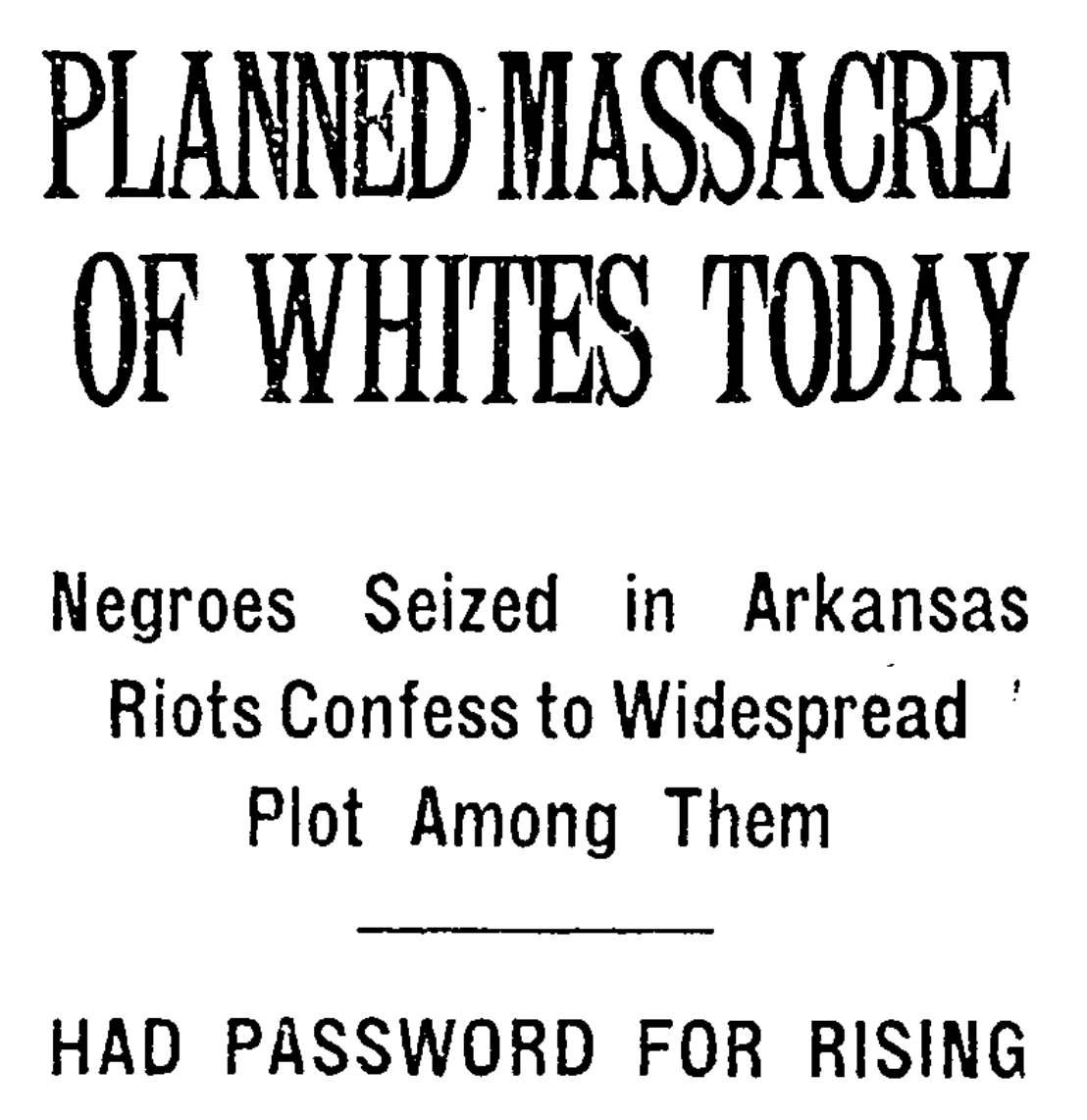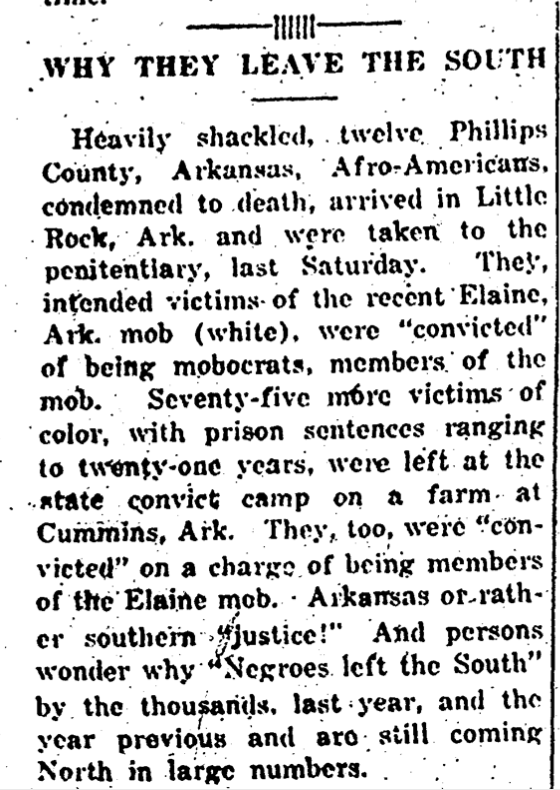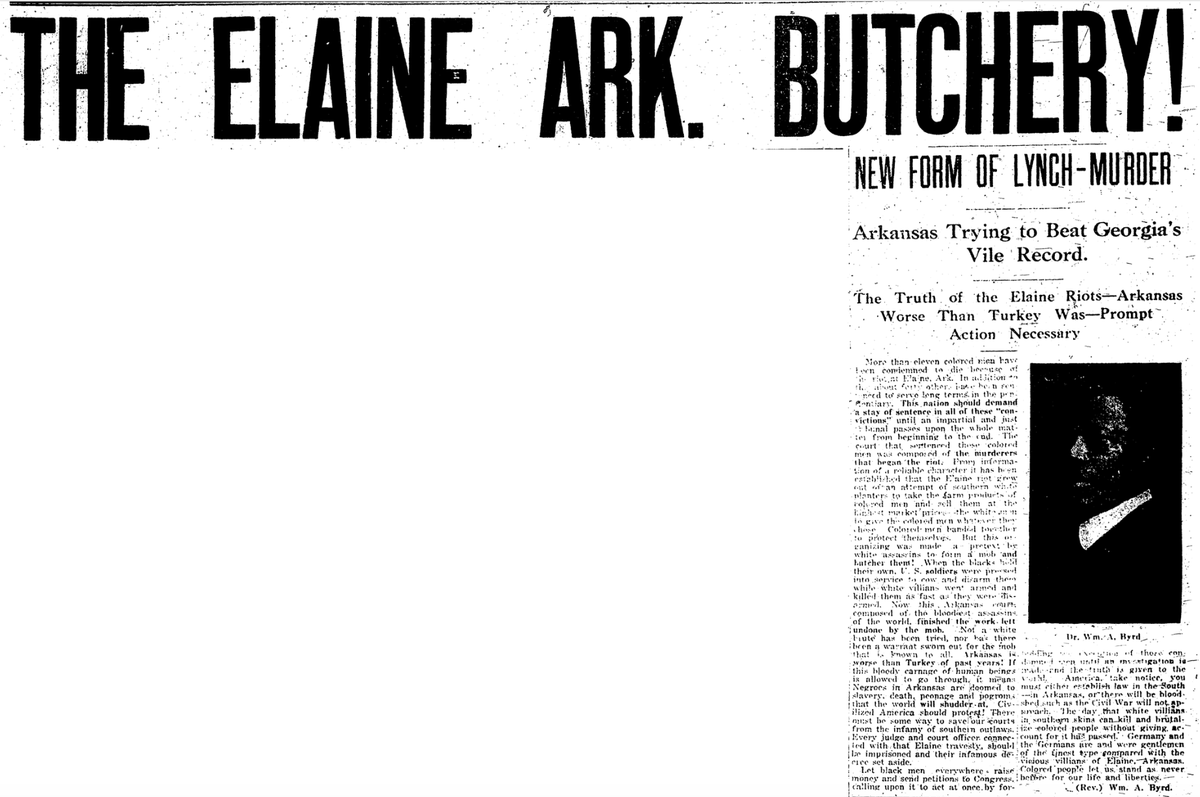This week I’ve been thinking about the very specific language and framing mainstream white-dominated media uses when covering black justice movements, and how it falls into the same, predictable patterns every single time. (cw: racial violence)
A few years ago I spent some time in newspaper archives looking at how the black press & the white press covered the 1919 Elaine Massacre, when white posses murdered hundreds of black people after black sharecroppers attempted to unionize and demand fair prices for their cotton.
The white planters’ narrative of black insurrection was uncritically accepted by white newspapers,—including local papers & the New York Times, which referred to the unionizing sharecroppers as “insurrectionists” and “rioters.” This is a NYT Sunday photo spread from Oct 1919
Mobs & police-led posses of white men chased down and murdered black sharecroppers. The National Guard was called in and, by some accounts, contributed to the slaughter. But you wouldn’t know this if you read only the “legacy media” accounts. (also NYT)
Here’s how black newspapers covered the same events, at the same time: with clarity, truth, and urgency, and without taking the powerful at their word (Cleveland Gazette here, & similar articles in Chicago Defender, The Crisis, etc)
The clearest accounts we have are from Ida B. Wells and Walter F. White, both of whom traveled to Elaine to conduct interviews and report on the ground at great personal risk; White had to flee town when local authorities discovered he was black. https://digital.lib.niu.edu/islandora/object/niu-gildedage%3A24320">https://digital.lib.niu.edu/islandora...
The narrative of black criminality propagated by “mainstream” white papers was obviously, provably false. But telling that story—emphasizing perceived "violence" of the "rioters"—allowed white readers to forget the root problem: the deep economic injustices of sharecropping.
Countless murdering wealthy white men walked free. To this day we don& #39;t know most of their names or the names of their victims, because the local newspapers didn& #39;t publish them.
And a century after Elaine, it’s obvious that the black press was the only press holding power’s feet to the fire back then. The rest were happy to sit back and accept the narrative terms of the powerful. That decision had consequences then and it has consequences now.
Many journalists & outlets still allow state power and capital to contextualize & explain away its actions while not affording the same luxury to people protesting a deep legacy of oppression. We have to do better than that. The language we use and the stories we tell matter.

 Read on Twitter
Read on Twitter





